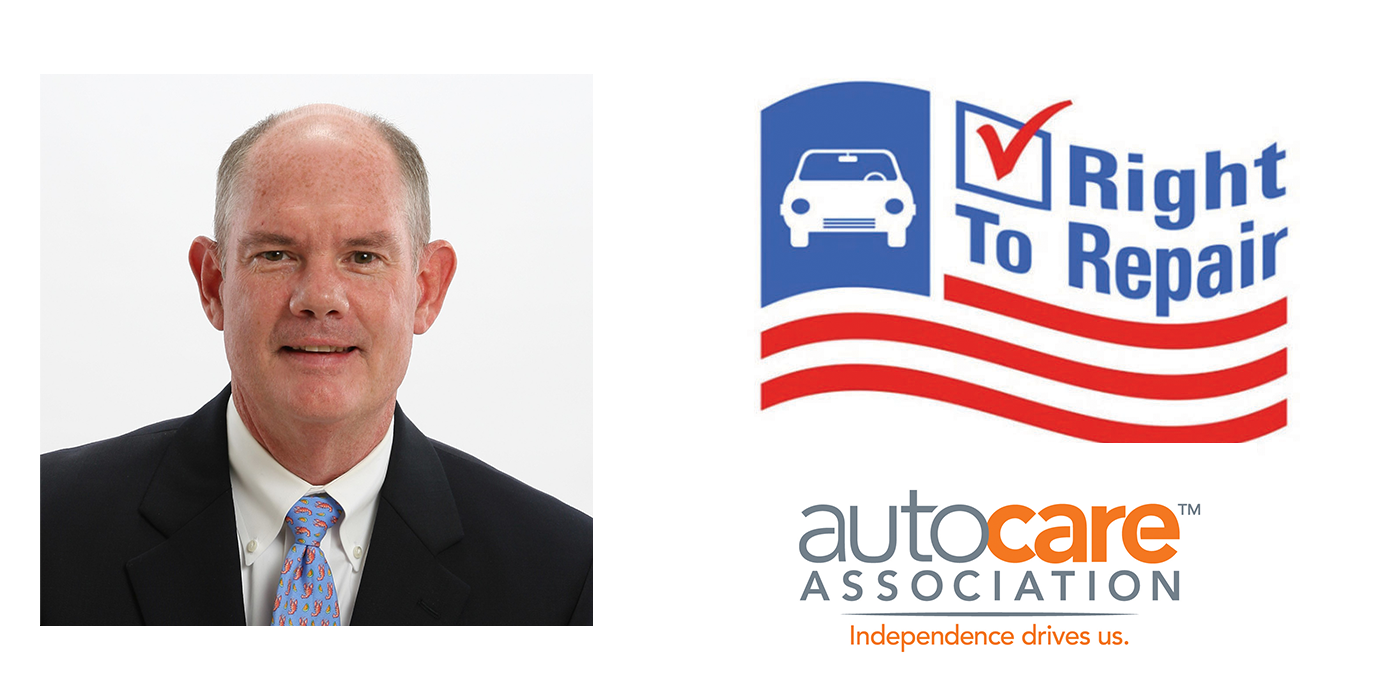This opinion piece on Right to Repair legislation and related issues has been provided by Ian Musselman, senior vice president of external affairs at LKQ Corporation.
Passing right to repair legislation is vital – for consumer choice, for independent businesses, for American jobs and for healthy market competition that helps keep costs affordable for Americans already struggling with sky-high car repair prices. As the REPAIR Act awaits consideration from the full House Energy and Commerce Committee after unanimous subcommittee passage, join the movement and call on your member of Congress to advance this much-needed legislation today at https://www.carrepairchoice.org/take-action.
If you bought a car, you own it. Or, at least, you should. Automakers are placing unnecessary, unfair restrictions on who can repair and service vehicles and which parts they can use – effectively stripping car owners of their right to exercise choice in the car repair process and blocking independent businesses from competing in the market. This unfortunate – and growing – trend is prompting drivers and business owners alike to call on Congress to advance two bipartisan right to repair bills: the REPAIR and SMART Acts.
As the Federal Trade Commission and the Department of Justice recently pointed out, anticompetitive conduct in the automotive marketplace is creating real problems for drivers and businesses across the country. By design, the automotive aftermarket has worked for decades alongside original equipment manufacturers (OEMs) to keep American drivers moving safely and reliably. Across the automotive aftermarket, independent shops, parts manufacturers, vehicle suppliers, and more share a common goal: providing car owners with quality, affordable repair and maintenance options.
In a fair and competitive market, factors such as price and convenience would drive repair decisions. According to a survey from the CAR Coalition and YouGov, consumers prefer using independent repair shops over dealerships by 2-to-1 – with the former performing about 70% of all auto repairs. Unfortunately, automakers are systematically working to tilt the playing field against alternative aftermarket industry – to the detriment of independent businesses and consumers.
Automakers are increasingly abusing U.S. patent law to claim that common collision repair parts – like bumpers, fenders, headlamps, and more – are exclusive intellectual property. From 2017-2022, the number of OEM design patents covering auto replacement parts grew by over 300% – with one automaker surpassing 600%. As a result, alternative parts manufacturers are limited in their ability to offer consumers quality alternative parts that can be up to 50% less expensive than OEM-branded parts, even after obtaining the same exact safety certifications.
When it comes to vehicle data, aftermarket suppliers and independent repair shops have historically utilized On-Board Diagnostic (OBD-II) ports to access necessary repair information. Increasingly, however, OBD-II ports may only transmit emissions data and not repair and maintenance information – as newer cars now often transmit the latter wirelessly through their telematics systems. OEMs are placing arbitrary limits on who can access this information, creating unfair barriers for independent shops seeking to properly restore vehicles to safe, optimal conditions after a collision.
The good news is there’s a movement of independent business owners and consumers who are saying enough is enough. At every level of government, right to repair advocates are fighting for more choice and more competition. In Washington, D.C., the Right to Equitable and Professional Auto Industry Repair (REPAIR) Act (H.R. 906) – a vehicle data access bill – is “gain[ing] steam” after passing unanimously through a House subcommittee last November. At the same time, conversation about design patent solutions is picking up, thanks to the Save Money on Auto Repair Transportation (SMART) Act (H.R. 1707).
At its core, the REPAIR Act seeks to ensure that longstanding collaboration and information-sharing between OEMs and the automotive aftermarket continues as vehicles modernize. More specifically, it ensures that independent repairers, vehicle suppliers, and car owners alike can’t be blocked from accessing vehicle data, tools, and software necessary for repairs and maintenance.
As a complementary bill, the SMART Act seeks to protect vehicle owners’ and independent repairers’ right to choose from a variety of quality, affordable aftermarket part options when making repairs. Without the commonsense REPAIR and SMART Acts, vehicle owners and repair shops will be left with fewer options and rising prices.
Together, the REPAIR and SMART Acts are backed by more than 60 combined bipartisan cosponsors and nearly 80% of American car owners. Hopefully congressional leaders can forge agreement to advance them soon, because the need for comprehensive right to repair protections is a real and growing problem.
For example, our sales team recently heard from an independent shop owner in rural Utah who has proudly built trust and support in his community over generations. He was struggling to source a truck hood for a local small business owner. It turned out that – despite being very similar to other designs used extensively by multiple automakers for decades – the hood was covered by an automaker’s design patent, eliminating aftermarket alternatives. While providing usefulness, it is neither novel nor inventive for a 2023 model vehicle. The OEM part did not arrive for months, putting the customer and his small business at financial and reputational risk.
This isn’t just an issue for non-affiliated shops. I’m increasingly hearing from independents and dealer service centers alike that they’re being locked out from routine vehicle maintenance and repair data needed to service certain makes and models. In many cases, this means additional costs and inconvenience for those vehicle owners. Worse, it could mean more cars on the road going without routine repair and maintenance, creating road safety concerns.
This isn’t just unsafe – it’s un-American. Fair competition is a hallmark of the U.S. economy, and correcting behaviors that unreasonably threaten free enterprise should be the goal of sound policymaking in Washington. Not to mention it threatens the livelihoods of the 4.7 million members of the auto care industry. Call or write your member of Congress to advance these much-needed solutions today at https://www.carrepairchoice.org/take-action.













